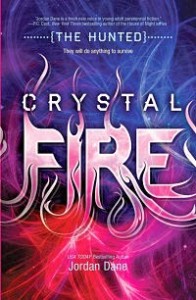I’ve read and heard various posts/discussions on where story ideas come, but for me it starts with one foundational notion—maintaining a fertile active mind. An author’s mind should be a rich soil cultivated for the seed of a story. Many elements can inspire and pique the interest of the author, but it takes a keen sense of storytelling for the seed to germinate into a story the writer wishes to tell. The author must be willing to commit to the project because it will take blood, sweat, and tears to complete the harvest and finish the book.
Five Key Ingredients to Nurture a Story
1.) Cultivate Fertile Ground
An author’s mind must be open to many things, much like a scientist is inquisitive about the world. I’ve found that passing judgment is a barrier to creativity. (What do you think?) Often research nurtures leaps that bound from one topic to the next until something resonates with the writer and the germination of a book idea begins. The “what if” question is a great place to start. Even if an idea or research topic doesn’t seem likely for one story, that research or notion may work for another book. Stay open to possibility. Sometimes it takes several ideas to make a story. Only the author writing the book will know when the combination is “write.”
2.) Stay Thirsty, my Friends
Yes, I’m borrowing the words of “the most interesting man in the world” because the notion fits. An author’s mind must be fluid and should be a sponge for ideas and inspiration. A writer’s constant thirst allows a story to take root and grow. The thirst sustains the writer over a career, but it also enhances his or her quality of life by filling the mind with a passion for learning new things. Flexing the mental muscle keeps the author young, don’t you think? Maybe learning new things allows an author’s brain to fend off age like the movie, “The Curious Case of Benjamin Button.”
3.) Heap on the Fertilizer
Yes, I’m going there. Compost and B.S. It takes a willingness to heap on the bull to push the envelope on what’s being published. Writers can look for trends to write and jump on an already established “band wagon,” but I believe every author has the duty to shove on the edge of the creative envelope. Make projects fun. A writer should be willing to write slightly out of their comfort zone to test their skill. It’s a challenge that can stir greater passion and a sense of accomplishment when the work is done. The story should drive the creativity, even if it takes the book and the author to a new place. If an author writes the type of book they want to read, with a good grasp of author craft, I believe they are the marketplace. Others will want to read the book too.
4.) Know When to Harvest
At some point an author will have to finish those interminable revisions and get on with it. Hiding out in revision hell too long stifles creativity. That never-ending book will become more of an albatross. Get your proposals out and do it in stages while you start something new to keep your mind distracted while waiting. Keep writing and finish what you start. Don’t walk away from writing a book because you lost interest or faith in the project. You will learn more from working out the problem than abandoning a book because that problem could turn out to be a chronic and recurring issue in need of a fix.
5.) Have Patience in Taking Your Crop to Market
Don’t rush the process. Hone your craft and put the time in to make your manuscript flourish. I see too many people rush to self-publishing. bypassing publishers and agents. (I’m in support of self-publishing, so please don’t read into my intent.) Some authors avoid the marketplace (selling a book to a publisher or seeking an agent) because they either don’t know how to do it or they wish to avoid getting that pesky pile of rejection letters. No one likes rejection, but it does build character and cultivates thick rhino skin, which comes in handy even after you’re published. Understanding the marketplace builds on your knowledge of the industry. Sometimes testing your worth in the market will give you much needed feedback. Avoid flying a charter helicopter over NYC and dropping query letters in a blanket snow fall. Be more selective and test a query letter. If it doesn’t provide a nibble or two, try something else and tweak your proposal until you get that “better” form of rejection or a sale.
What say you, TKZers?
1.) What triggers a story in you?
 The latest release from Jordan Dane – Crystal Fire (Harlequin Teen, Dec 2013) The Hunted series.
The latest release from Jordan Dane – Crystal Fire (Harlequin Teen, Dec 2013) The Hunted series.


Being that my initials are literally B.S. I believe I have a grasp on that fertility/compostity bit.
Berthold says I am very adept at fertilizing when it comes to spreading the B.S.
Ha! You definitely maintain fertile soil, my friend. Consider donating your brain to science…whenever you’re not using it. Thx, B.S.
I have a new habit. I believe I got the idea from TKZ, specifically Mr. Bell. At the start of each chapter, I ask myself “What is the worst thing that could happen to these characters in this situation.?” So far, the answer is just the right fertilizer.
An author should never underestimate the power of a heaping pile of compost.
Author friends of mine, more experienced writers, shared their advice to reach for elements that might appear to be “over the top,” but in writing a book, it works. The layers of emotion or intensity resonates with readers more. Whatever a scene calls for, heap it on and layer it in your final edits, using discretion of course.
Good stuff, Jordan. In my workshops I advocate writers have at least 1/2 hour a week of pure creativity time. Do exercises (like the first line game; the what if game; the title game, etc.) This develops the muscles of the imagination, which is not just for coming up with ideas; it also helps you write better when you write!
And when I was a lawyer, I was constantly told how much fertilizer I tossed….
I’m a fan of fertilizer, Jim. Heap it on, baby. Great suggestion about the creative games. It also keeps the fun in the writing. Good stuff.
Excellent post, Jordan. Thank-you.
Thanks, Elizabeth. Happy writing.
JD: How are you doing? Inspiring post. I’m in the Basil Camp. I can start talking-defining-anything at the drop of a hat. Of course it’s all baloney, but the juice is seeing just how far you can stretch it before the credibility starts to crumble. And you gotta do it with a straight face, too. I can’t help but do it. Anytime. Anywhere.
So story ideas pop up like weeds in my head. I make little notes. Then I discover these scraps of paper stashed all over the house in the oddest places. When I’m at the computer, these brainstorms always go into the same file. Elsewhere is another story. It always fun stumbling across these little tidbits. Sometimes it’s wire bound notebooks filled with “stuff.” Almost like the Easter Bunny hid them around the place. You get the picture. Right?
So I have to be careful to just not sit there dreaming and actually punch out some text. Fortunately, there is someone else “upstairs” who does all that, and it’s always a thrill to discover Word docs crammed full of chapters. Otherwise, I just blissfully hang out with the woodshop boys readin’, writin’ and sawin’.
Cheers!
Jim in Montana (writing as Adam James)
Yeah, I knew you & Basil would have that in common, Jim. No alcohol required…but it wouldn’t hurt.
If you and Basil don’t show up at Buchercon in Long Beach, I’m going to cry myself to sleep. Maybe they will book the convention in Denver SOON and we won’t have to worry about the alcohol.
Great post! Each of my stories have grown from a real-life situation. I build from there.
I like drawing from real experiences as long as it doesn’t inhibit any new direction that would enhance the plot or characterization. Since you build on your idea, I’m sure you understand my point. But an author friend of mine centered everything on his real life and rarely wavered. It limited what he considered about the character because he always wrote about HIMSELF. The love scenes were rather insightful.
Great tips, Jordan – and so well-expressed, as always! 🙂
Thank you, Jodie. Have a great weekend.